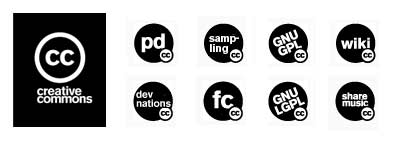Creative Commons: Some Rights Reserved

I've been a proponent of Creative Commons (CC) since it's onset in 2001. Since that time, the subject of free, royalty free, right managed and licensing of photography (and other assets) in general continues to come up in discussions with my circle of clients, colleagues and collaborators. After all, most everyone knows what "All Rights Reserved" means. But what about "Some Rights Reserved?" Do you know what that means?
In short, a Creative Commons license is based on copyright, and applies to all works protected by standard copyright law—such as books, websites, blogs, photographs, films, videos, songs, etc.. A CC license allows you to determine how others exercise your copyright rights—like the right to copy your work, make derivative works or adaptations, and to distribute and to money from your work. So if Daniel has a copy of your CC-licensed work, he can share a copy with Winder–then Winder will be authorized to use it too, so long as it's consistent with the CC license you have attached to it, for which there are several choices of license you can assign. You then have a license agreement separately with both of them. The CC licenses are provided in three different formats: Commons Deed (human-readable); Legal Code (lawyer-readable); and the metadata (machine readable). Another great thing about a CC license is that they are all non-exclusive—meaning you can allow the public at large to use your work under a CC license, while entering into a separate and unique non-exclusive license with someone else, for example, in exchange for money.
As you can see, this subject isn't a quick read, and certainly requires a bit to get your brain around. But if you take away just one thing, know that Creative Commons is widly recognized and utilized. I've benefitted, as have my clients and employer, by using CC licensed images in my work, and have had over 3,500 downloads of my own images, all of which I've shared for free.
So poke around the main website, then check out these videos to learn even more. And feel free to comment. I'd love to hear your thoughts.



0 Comments:
Post a Comment
<< Home